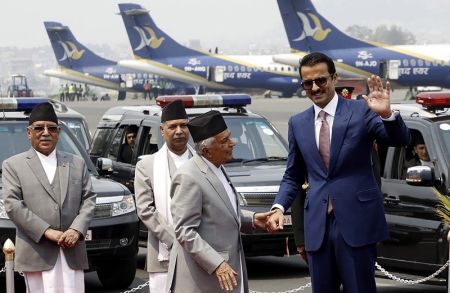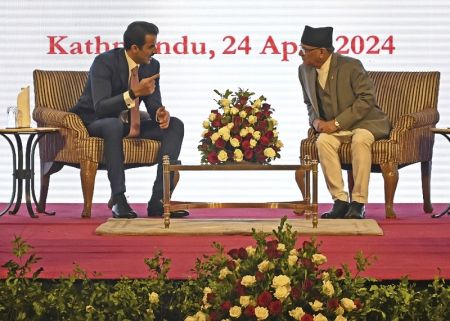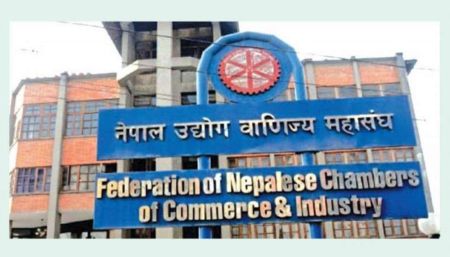.jpg)
Perhaps no one would disagree that the most influential institutions within contemporary societies may be the economic institutions.
--By Sujit Mundul
Leadership and business ethics is a much discussed topic in the current time. So, it would be in order to have a deeper understanding of business ethics. Manuel G. Velasquez, known as the father of academic business ethics, has given a simple but in-depth definition of business ethics. According to him, business ethics is a specialised study of moral right and wrong that concentrates on moral standards as they apply to business institutions, organisations and behaviours.
Perhaps no one would disagree that the most influential institutions within contemporary societies may be the economic institutions. These are designed to achieve two ends:
• Production of goods and services the members of the society want and need, and
• Distribution of these goods and services to the members of the society
Business organizations are the primary economic institutions through which people in modern societies carry on the tasks of production and distribution of goods and services. They provide the fundamental structure within which the members of society combine their scarce resources - law, labour, capital and technology – into usable goods and their distribution in the society, in the forms of consumer products, employee salaries, investors’ returns, government taxes etc.
The most significant kind of modern business organisations are the “corporations” or “Limited Companies” that the law endows with special legal rights and powers. As an organisation, a modern corporation has different stakeholders such as shareholders, employees, customers, regulators, society, etc. To cope with the complex co-ordination and control problems, corporations have to adopt bureaucratic systems of rules and regulations, so as to achieve certain outcomes or objectives. Hence, business ethics is a study of moral standards and how these standards apply to the social systems and organisations through which modern societies produce and distribute goods and services and to the behaviours of the people who work within these organisations. Business leaders play a very important role in directing the whole process for achieving the desired level of success.
Joseph L Badaracco, a specialist in business ethics, is of the opinion that modesty and restraint are largely responsible for the achievement of the most effective moral leaders in business. He says that the quiet leaders follow four basic rules in meeting ethical challenges and making decisions. It has been observed that the rules constitute an indispensable tool kit that can help quiet leaders work out the solutions for the dilemmas they encounter in the course of their leadership journey. Some tactics may seem to be a bit clever or even ethically dubious! Few people, indeed, would want to work at jobs where such moves could constitute business as usual. However, it has been found that such guidelines often prove critical when leaders have real responsibilities to meet.
.jpg)
In real life situations, when ethical dilemmas heat up, quiet leaders often look for ways to buy time. On most occasions, the passage of time allows turbulent waters to calm and also provides the leaders an opportunity to analyse the subtle ways in which individuals and events interact; it lets them look for opportunities to arise from the flow of events. In these events, sound moral instincts have a chance to emerge. However, there are situations e.g. when a defective product is about to be shipped or a misleading finance report to be released – that call for immediate action. Empirical evidences reveal that the vast majority of practical ethical challenges confronting most managers are mundane and subtle, calling for the unglamorous virtues of patience and staying in power.
It is well known that political capital is the hard currency of organisational life. It is earned by establishing a reputation for getting things done and by having a network of people who can appreciate and reward your efforts. Political capital is hard to accumulate, but very easy to dissipate. That’s why the giant leaders invest it astutely and use it with care. In other words, they pick up their battles wisely.
.jpg) There is a well known axiom: Bend the rules, don’t break them. Most of us do not associate bending the rules with moral leadership. But following the rules can be a moral escape. If a friend asks if you like her shoes, and you think they look ridiculous, you don’t tell the truth. When the Gestapo demanded to know who was hiding Jews, some people lied. Between the trivial and the tragic are many situations in which responsible people work hard to find ways to manoeuvre within the boundaries set by the rules. Instead of acting like moral book-keepers, they bend the rules and own up to their deeper responsibilities. Quiet leaders don’t view such tactics as ideal ways to handle problems, but sometimes, situations give them no choice. In complex ethical situations, bending the rules is not easy at all. In fact, bending the rules – as opposed to breaking them – is a very difficult task. It does require imagination, discipline and entrepreneurship – as argued by Joseph Badaracco, Jr.
There is a well known axiom: Bend the rules, don’t break them. Most of us do not associate bending the rules with moral leadership. But following the rules can be a moral escape. If a friend asks if you like her shoes, and you think they look ridiculous, you don’t tell the truth. When the Gestapo demanded to know who was hiding Jews, some people lied. Between the trivial and the tragic are many situations in which responsible people work hard to find ways to manoeuvre within the boundaries set by the rules. Instead of acting like moral book-keepers, they bend the rules and own up to their deeper responsibilities. Quiet leaders don’t view such tactics as ideal ways to handle problems, but sometimes, situations give them no choice. In complex ethical situations, bending the rules is not easy at all. In fact, bending the rules – as opposed to breaking them – is a very difficult task. It does require imagination, discipline and entrepreneurship – as argued by Joseph Badaracco, Jr.In some circles, compromise has a bad reputation. Some people think compromise is what politicians and lobbyists do. Many of us believe that good people – moral people – refuse to compromise. They tell the truth – and nothing but the truth and they are always fair. Quiet leaders understand this view of moral principles, but regrettably, they don’t find it particularly useful in most situations. They normally reject the idea that moral principles can be treated like Salami and sacrificed slice by slice, but they try to see situations as a black and white test of ethical principles. For this reason, crafting responsible, workable compromises is not just something that quiet leaders occasionally do.
In the current days of changing regulatory landscape, the modern leaders are finding it challenging to handle, even the mundane situations and quiet leadership, perhaps could be useful to lead the way in finding workable solutions.
Sujit Mundul is former CEO of Standard Chartered Bank Nepal where he currently serves as a member of the Board of Directors.






















